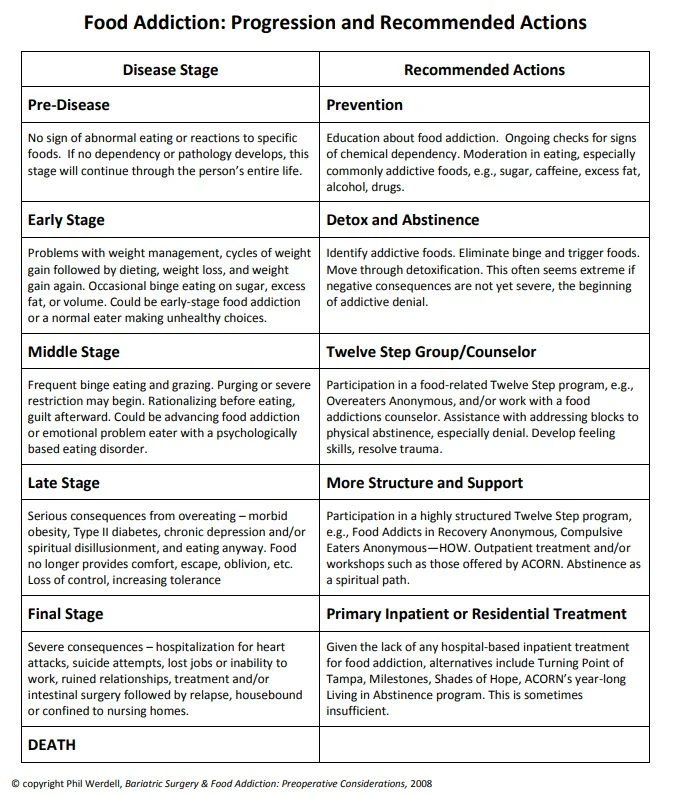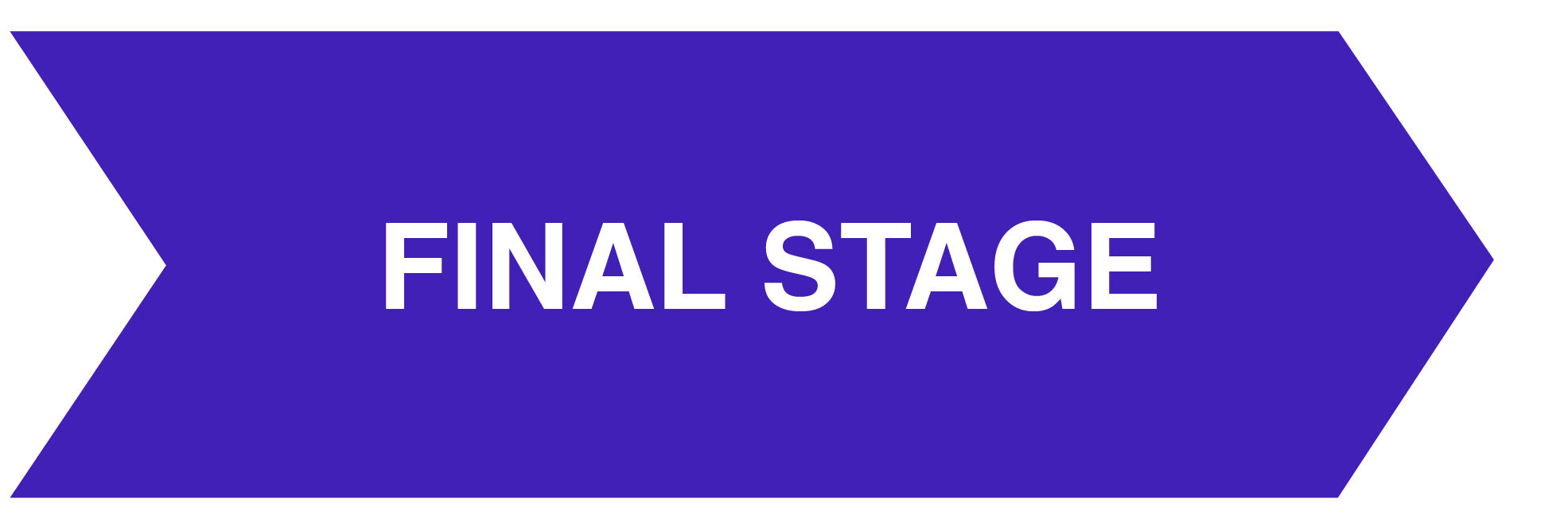Food addiction is a progressive disease. Different food addiction informed approaches are required at each stage of the disease. Recovery is possible and long term recovery is available with abstinence from certain foods that operate like substance abuse.
It is important to be able to recognize food addiction early and identify what stage of the disease one is currently experiencing.

It is possible to be a food addict without having any obvious symptoms of food addiction. In the stage prior to food addiction presenting as an issue, food addicts are often unaware that they have a problem since food often seems more like the solution to life’s stresses and challenges than the problem. The main problem usually begins with a lack of good education about food addiction.

Pre-Disease
No sign of abnormal eating or reactions to specific foods. If no dependency or pathology develops, this stage will continue through the person’s entire life. Prevention: Education about food addiction and food addiction informed training and community, especially if there is addiction in the family tree. Ongoing checks for signs of chemical dependency. Moderation in eating, especially commonly addictive foods, e.g. sugar, caffeine, excess fat, alcohol, drugs.

Early stage
In the early stages of food addiction, what becomes apparent are problems with weight management, cycles of weight gain followed by dieting, weight loss, and weight gain again. Occasionally binge eating on sugar, excess fat, or volume. Could be early-stage food addiction or a normal eater making unhealthy choices.
Treatment
Detox and Abstinence: Identify addictive foods. Eliminate binge and trigger foods. Move though detoxication. This often seems extreme if negative consequences are not yet severe, the beginning of addictive denial. Requires food addiction informed trained professional counseling and community support.

Middle
In the middle stages of food addiction, behavior may include frequent binge eating and grazing. Purging or severe reactions may begin. Rationalizing before eating, guilt afterward. This could be either advancing food addiction or an emotional problem eater with a psychologically based eating disorder.
Treatment
Twelve Step / Peer Support Group / Food Addiction Informed Counselor Participation in a food-related Twelve Step program, e.g., Overeaters Anonymous, and/or work with a food addiction counselor. Assistance with addressing blocks to physical abstinence, especially denial. Develop feeling skills, resolve trauma.

Late stage
The late stages of food addiction brings serious consequences from overeating – morbid obesity. Type II diabetes, chronic depression and/or spiritual disillusionment, and eating anyway. Food no longer provides comfort, escape, oblivion, etc. Loss of control, increasing tolerance.
Treatment
More Structure and Support: Participation in a highly structured Twelve Step program, e.g., Food Addicts in Recovery Anonymous, Compulsive Eaters Anonymous – HOW. Outpatient treatment and/or workshops such as those offered by SHiFT. Abstinence as a spiritual path. Food Addiction informed treatment from Certified Food Addiction Professional (CFAP). Participation in the International School for Food Addiction Counseling and Treatment (INFACT) Treatment Practicums

Final Stage Severe consequences – hospitalization for heart attacks, suicide attempts, lost jobs or inability to work, ruined relationships, treatment and/or intestinal surgery followed by relapse, housebound or confined to nursing homes. Primary Inpatient or Residential Treatment: Given the lack of any hospital-based inpatient treatment for food addiction, alternatives include Turning Point of Tampa, Milestones, Shades of Hope, SHiFT Acorn Intensive program. This is sometimes insufficient.
The last stage of food addiction is death.
The death rates for food addicts are probably similar to those for obesity: statistically, active food addicts can expect to die five to ten years before their healthier counterparts, and more importantly, the last stages of life for the active food addicts can be very painful physically, emotionally and spiritually.